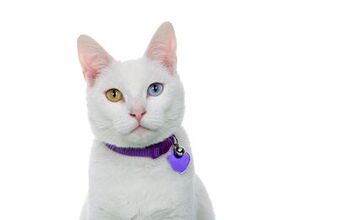French Boodle


About French Boodle
French Boodle Basics
Oh la la! This lovely little pooch who traces back their parentage all the way back to the land of croissants and art is ready to conquer your heart. The fun-loving little French Boodle is a great fit for families with kids and other pets. He brings the intelligent, playful personality of the Poodle together with the affectionate, friendly characteristics of the French Bulldog for an entertaining yet willful dog that loves to be the center of his family’s attention. He will thrive with people that will shower him with love and can spend a lot of time with him – that’s why big families, seniors in their retirement, or singles that work from home all make a great match for this breed. These dogs are not overly active, so they can fit most lifestyle – they’ don’t need strenuous daily exectice to stay happy and healthy, but rather regular short walks around the block and some quality playtime.
The fun-loving French Boodle brings the playful Poodle together with the friendly French Bulldog.
Origin
As the French Boodle is classed as a designer dog, he doesn’t have a well-documented history. There’s a murky line between when people started intentionally producing first Poodle and French Bulldog mixes and crossbreeds of this parentage that were results of, well, “accidents”. Either way, it’s safe to ssume that the French Boodle shares its origin with most other designer dog breeds – dating it back to 1990s and 2000s when most of these unique “hybrid” dogs came to be. This is the period when breeders started intensively mixing and matching purebred DNA to produce a dog that was ideally free of the health issues that often plagued the parent breeds. In addition to a healthier animal, breeders also began to develop dogs that met the demand for smaller, hypoallergenic and gentler forms of popular breeds.
Pedigree
The French Boodle is not a purebred dog meaning that he does not qualify to be a member of the American Kennel Club (AKC). In their eyes, all designer dogs are essentially mutts, and as such, can’t have an official breed standard and be considered a “real” breed. The main reason for this is that designer dogs such as the French Boodle are simply too “unpredicatable” in terms of their looks and personalities, as one can never know which parent’s genes will be more dominant. As such, they can’t be standardized to fit the concept of a purebred dog.
However, this doesn’t mean that the French Bulldog doesn’t have a pedigree in terms of an impressive lineage – after all, his parents have been members of prestigicous canine clubs such as the AKC for well over a century. In the United States, the French Bulldog joined the “non-sporting” group in 1898 while the Poodle joined the same group back in 1887.
Food/Diet
The French Boodle is not an overly active dog and his small size and potential for joint issues later in life mean that its important he receive a nutrient-rich food that is specifically designed for his age, size and activity level. In most cases, pet owners opt for dry dog food, both because it is convenient to feed and readily available, but you can’t grab any formula and call it a day when you have a French Boodle. Go for high-quality formula with wholesome, natural ingredients that lists real meat as the first ingredient, followed by other body-nurturing foods your pet needs. It should be a balanced combination of plenty of protein, complex carbs, lot of fiber and some healthy fats to be a source of essentiall fatty acids such as Omega 3 and Omega 6.
Avoid foods ladden with cheap fillers that will cause him to want to over-eat to feel full and result in weight gain – a big problem when joints are involved, and with a breed that is small in stature they can certainly become an issue when obesity comes into play. To promote better digestion and prevent overeating, split the recommended dose of kibble into 2 or 3 smaller meals a day instead of serving one large meal your pooch will snarf up in seconds. If they tend to eat too fast, consider a slow feeder to keep them on track.
The affectionate, sociable French Boodle is a great family pet who loves kids and other animals.
Training
The French Boodle will be a handful when it comes to training. He brings the smarts of the Poodle together with the stubborn streak of the French Bulldog for a dog that will require plenty of patience to get the results you’re looking for. Because socialization and obedience training are important to bringing out the best in any dog, consider using a professional trainer if all else fails. A consistent, firm approach is ideal for this pooch and because this breed is heavily motivated by food, praise and treats will go a long way in achieving success.
Weight
Depending on whether your French Boodle leans towards the Miniature Poodle or the French Bulldog, he will weigh between 16 and 25 pounds when he reaches adulthood. A small to medium size breed, the French Boodle will do well in a variety of environments. They will adapt to any size apartments and homes, small or large.
Temperament/Behavior
The affectionate, sociable French Boodle is a great family pet who loves kids and other animals. This boy loves to be involved in all family activities and considers himself to be an integral part of his human pack which means he doesn’t do well when left on his own for long periods of time – often suffering from separation anxiety. He can present a stubborn streak that requires his owner establish himself as the pack leader. His super friendly nature means this pooch isn’t watchdog material.
Common Health Problems
The French Boodle will ideally be able to bypass many of the health issues that plague his purebred parents however you must always be aware of what your new pup could inherit. While joint and digestive issues may be present from the Poodle, if your pooch inherits the flatter face of the French Bulldog he could be prone to breathing and respiratory issues and be highly sensitive to heat (the shorter snout doesn’t allow him to pant in the same way other dog do to expel heat).
Life Expectancy
French Boodles can be expected to live between 11 and 13 years. This is, generally speaking, the most common lifespan for most dog breeds. Even though it falls just a tad bit shorter than the average maximum life expectancy of 15 years, it is nonetheless a solid lifespan. It ensures that your French Boodle friend stays by your side for a great number of years. Of course, this number can be exceeded – it all depends on your pet’s genetics, their health, and the love and care that they are given.
To that end, you need to remember that your pet cannot reach that maximum end of the lifespan spectrum without your love and care. Take them to the vet regularly, ensure that they are fed properly, and give them all the love and affection you have. This will guarantee that your little French Boodle lives a full, joyous life with you by their side.
Exercise Requirements
The French Boodle is a playful pooch who requires minimal exercise to keep him physically fit and mentally stimulated. A couple of short daily walks and interactive playtime – throwing a ball or Frisbee in the yard or including some fun indoor games – should be sufficient to meet his activity needs. But it is important not to overlook their need for regular exercise: if your pupper grows lazy, they can become a bit overweight. And that’s never good. Still, with Poodles and French Bulldogs having minimal predispositions for obesity, the French Boodle will be roughly the same. A bit of running and some light exercise per day will satisfy their needs and keep them fit.
The affectionate French Boodle considers himself to be an integral part of the family.
Recognized Clubs
The French Boodle’s designer dog status means he isn’t recognized by the American Kennel Club (AKC) however he is a member of the Designer Breed Registry (DBR and the International Designer Canine Registry (IDCR). Of course, there are always the specialized clubs and organizations that are focused on this very unique designer breed. These are usually composed of long-time owners and breed enthusiasts. That makes them the ideal place to get answers to all the burning questions you have about the French Boodle – whether you are a new or future owner is not important. After all, the best answers come from experienced and seasoned long time owners.
Coat
The French Boodle comes from two breeds that shed minimally so you can expect your pooch to be a low- to non-shedding dog. Brushing 1 to 2 times per week will help keep his coat clean and shiny while occasional visits to the groomers to help maintain his coat shape will be sufficient. Because he is a floppy-eared dog, plan to check and clean them weekly to avoid a build-up of dirt and possible infection.
Puppies
Your French Boodle puppy may be prone to deafness and prior to bringing him into your family, you may want to have the breeder conduct a Baer test to confirm your pooch has his hearing. If he does not, this in no way diminishes his ability to become a wonderful family pet – he will simply require specialized training to aid your ability to communicate with one another.
French Boodle puppies can be quite small and fragile in those early days. Due to this, you want to exercise great care when handling them. Don’t expose them to large crowds immediately as this can cause stress and injury to the tiny pup. If you have children in the household, make sure to let them know that the puppy is fragile and needs to be handled with gentleness and care.
Of course, when those early, sensitive days have passed, you will quickly notice your French Boodle’s eagerness to play and goof off. And that is your sign to begin implementing that all-important early socialization. Without it, you risk your pet developing some nasty behavioral issues. These include aggression, aloofness, fear, timidity, and anxiety. For small breeds, this can become a big issue: they will tend to lash out at strangers, be overprotective of their food, bark, and snarl too. Thankfully, socialization does wonders to prevent this. Surround your pet with caring faces and loving people. Introduce them to strangers, kids, and other friendly dogs. That way you will be certain that you are raising a healthy, energetic, and above all – friendly dog.
Photo credit: Songdech Kothmongkol/Shutterstock.com; Livefocus/Shutterstock.com

Sharing space with three seriously judgy Schnoodles and a feline who prefers to be left alone. #LivingMyBestLife
More by Mary Simpson

























